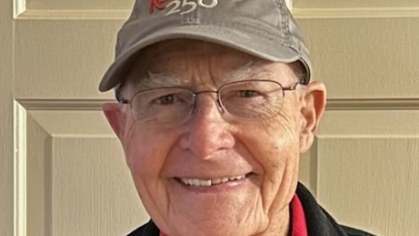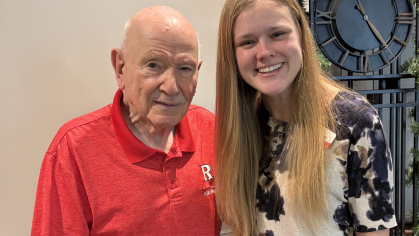Rutgers School of Social Work’s Office of Field Education recently launched a self-care toolkit for social work students and practitioners who are susceptible to compassion fatigue and burn out as they provide care to others. Finding proper and individualized ways to unwind after facing various stressors can recharge the mind, body, and spirit for personal and professional growth and fulfillment.
We recently had the opportunity to speak with Ruben Wilmer, a recent graduate of our BA in social work program, about the importance of self-care for social workers.
Tell us a bit about the work you’ve done in self-care.
I was tasked with researching different aspects of what self-care was and how it could be applicable in the field of social work. After reading countless articles and watching innumerable videos, podcasts, and TEDtalks, I started to see a common trend of what self-care was and was not. After compiling all of my relevant data, information, and sources, my team, Keith Kanauss and Courtney Sherwin, and I developed a presentation for the School of Social Work to display our newfound knowledge on the subject, which went pretty well if I do say so myself. That was for the fall semester, but spring was a whole other beast. We took on huge tasks and challenges with it in developing a self-care toolkit on the School of Social Work website, as well as the creating newsletters for the students in the field practicum. We were able to create some solid foundations for the incoming students that will take up our mantle in the coming years.
What did you learn doing this work?
Self-care is a tailored process designed specifically for your needs and wants. It really is for you, and you can express it in any way that helps you rebalance, refocus, and re-center yourself to prepare for the next task. It isn’t a band aid that you put over the wound and hope that it heals; it's a preventative treatment to not only prepare you for future workloads, but also to restore and repair you from past traumas and exhaustions, building your resistance to those same reactions. Self-care is, at the core of it, a tool for learning – learning what you can handle and what you can’t as the current version of yourself, and learning what skills you have down pat and what you should work on more to create the best environment, atmosphere, and mindset that you need in order to be your most productive self.
What advice would you give to fellow students who struggle with self-care?
I would say to do your research if you struggle with self-care. Learn what could be good for you and what will actually fit your needs. Not everything will work for everyone, since it is a tailored plan for your own self-care needs. You can pick and choose what you want to be part of your plan and what seems a bit much for you. Also, start slow. Don’t just jump in and start doing all of these strategies and activities, which will just overwhelm you with something else on top of your other stressors, especially not with something that is supposed to be helping. I find it is also good to make a schedule, if that’s your way of doing things, and to actually write in times where you will do nothing but focus on yourself and your own wellbeing.
What are some of the ways you practice self-care?
I have a simple self-care routine that I’ve cultivated and built for the last few years. I try to meditate every day, but sometimes life gets in the way, so I shoot for three times a week at a minimum. Every night I do take an hour to myself with no social interaction since that can drain my emotional battery and allows me to recharge for the next day and interaction. I also do little brain games like word searches and crosswords that allow me to relax my mind from all of the stressful things I have to encounter, while training my brain at the same time. The most helpful thing I do to take care of myself is that I take the time to assess my mental faculties daily, so that I know where I am for potential stressful encounters, because you never know when anxiety and stress will pop up, but being ready and able to counter and diffuse it is the best practice for me personally to overcome it.



